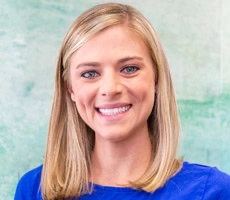
Channing Gerard Joseph
Keynote Speaker: Queer Culture Historian; 2022 TED Global Visionary; Award-Winning Journalist & Writer
-
Travels From:
-
Speaking Fee:
-
Categories:
SPEAKING TOPICS
Channing Gerard Joseph Speaking Topics
VIDEO
REVIEWS
Channing Gerard Joseph Reviews
-
The Knot Worldwide - Feb 14 2024
-
Channing was AMAZING. He had everyone engaged, interested, and EDUCATED. He thoughtfully answered questions and was just a pleasure to work with.
PepsiCo - Nov 14 2023 -
Everything went well. It was a great conversation!
Credit Karma - Jun 14 2023
FAQS
-
How do I book Channing Gerard Joseph to speak at my event?
Our experienced booking agents have successfully helped clients around the world secure speakers like Channing Gerard Joseph for speaking engagements, personal appearances, product endorsements, or corporate entertainment since 2002. Click the Check Schedule button above and complete the form on this page to check availability for Channing Gerard Joseph, or call our office at 1.800.698.2536 to discuss your upcoming event. One of our experienced agents will be happy to help you get speaking fee information and check availability for Channing Gerard Joseph or any other speaker of your choice. -
How much does it cost to book Channing Gerard Joseph for a speaking engagement?
Speaking fees for Channing Gerard Joseph, or any other speakers and celebrities, are determined based on a number of factors and may change without notice. The estimated fees to book Channing Gerard Joseph are $10,000 - $20,000 for live events and Below $10,000 for virtual events. For the most current speaking fee to hire Channing Gerard Joseph, click the Check Schedule button above and complete the form on this page, or call our office at 1.800.698.2536 to speak directly with an experienced booking agent. -
What topics does Channing Gerard Joseph speak about?
Channing Gerard Joseph is a keynote speaker and industry expert who speaks on a wide range of topics such as LGBTQ, Diversity & Inclusion, Social Activism, Civil Rights, History, Authors, Journalism, Black Heritage, Black History Month, TED and Anti-Racism. -
Where does Channing Gerard Joseph travel from?
Channing Gerard Joseph generally travels from Berlin, Germany and can be booked for (private) corporate events, personal appearances, keynote speeches, or other performances. -
Who is the agent for Channing Gerard Joseph?
AAE Speakers Bureau has successfully secured keynote speakers like Channing Gerard Joseph for clients worldwide since 2002. As a full-service speaker booking agency, we have access to virtually any speaker or celebrity in the world. Our agents are happy and able to submit an offer to the speaker or celebrity of your choice, letting you benefit from our reputation and long-standing relationships in the industry. Please click the Check Schedule button above and complete the form on this page including the details of your event, or call our office at 1.800.698.2536, and one of our agents will assist you to book Channing Gerard Joseph for your next private or corporate function. -
What is a full-service speaker booking agency?
AAE Speakers Bureau is a full-service speaker booking agency, meaning we can completely manage the speaker’s or celebrity’s engagement with your organization from the time of booking your speaker through the event’s completion. We provide all of the services you need to host Channing Gerard Joseph or any other speaker of your choice, including offer negotiation, contractual assistance, accounting and billing, and event speaker travel and logistics services. When you book a speaker with us, we manage the process of hosting a speaker for you as an extension of your team. Our goal is to give our clients peace of mind and a best-in-class service experience when booking a speaker with us. -
Why is AAE Speakers Bureau different from other booking agencies?
If you’re looking for the best speaker recommendations, paired with a top-notch customer service experience, you’re in the right place. At AAE Speakers Bureau, we exclusively represent the interests of our clients - professional organizations, companies, universities, and associations. We intentionally do not represent the speakers we feature or book. That is so we can present our clients with the broadest and best performing set of speaker options in the market today, and we can make these recommendations without any obligation to promote a specific speaker over another. This is why when our agents suggest a speaker for your event, you can be assured that they are of the highest quality with a history of proven success with our other clients.
BOOK CHANNING GERARD JOSEPH
We are happy to assist you with your interest in booking a speaker or celebrity for your event, your organization, and the type of talent you would like to secure, and an agent will be in touch shortly.
Fill out the form below to or call us at 1-800-698-2536 if need immediate assistance.
We respond to most inquiries within 4 hours. Under special circumstances, it may take up to 24 hours.
This website is a resource for event professionals and strives to provide the most comprehensive catalog of thought leaders and industry experts to consider for speaking engagements. A listing or profile on this website does not imply an agency affiliation or endorsement by the talent.
All American Entertainment (AAE) exclusively represents the interests of talent buyers, and does not claim to be the agency or management for any speaker or artist on this site. AAE is a talent booking agency for paid events only. We do not handle requests for donation of time or media requests for interviews, and cannot provide celebrity contact information.























